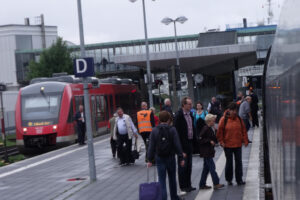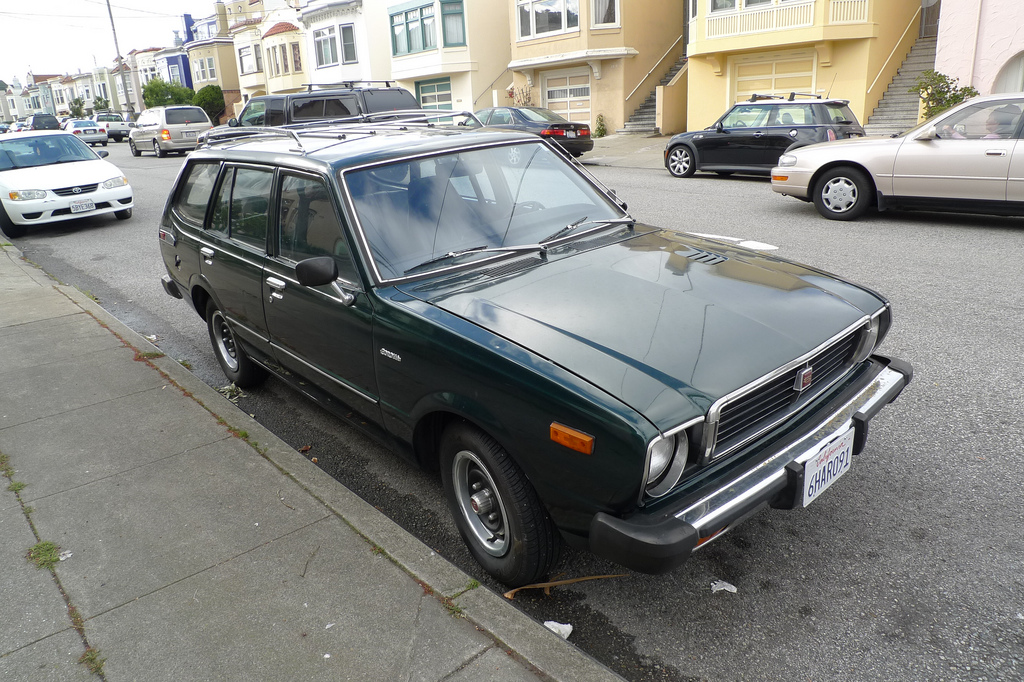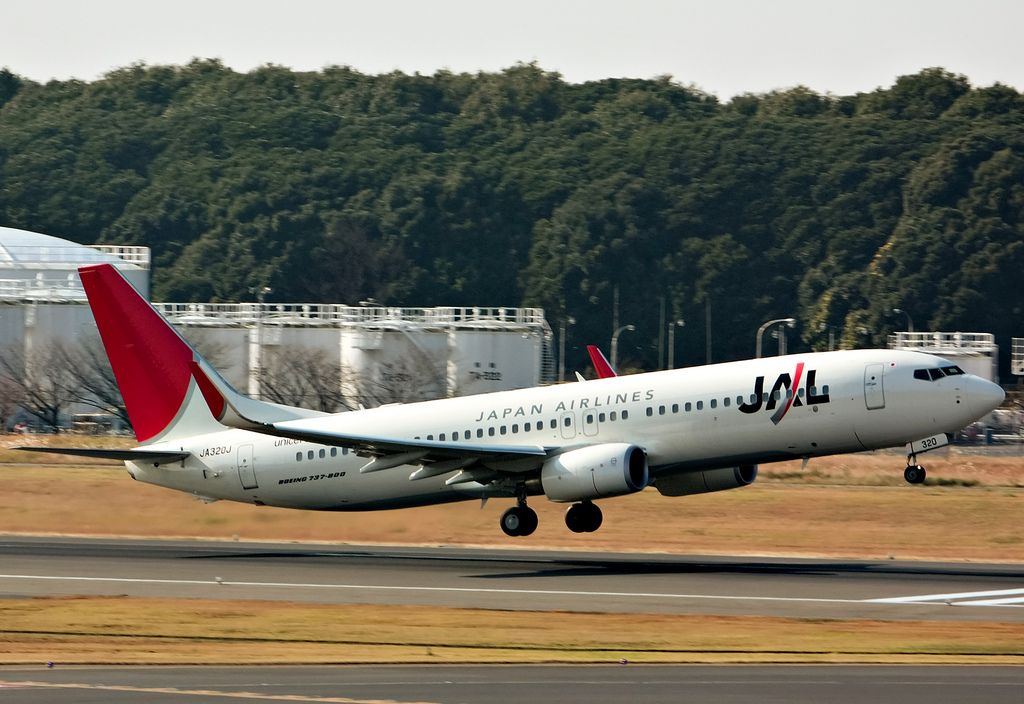A delay. We’re sitting in the Bremen train station trying to figure out what is going. We have run down one set of stairs and up another to get to a new platform and now it looks like our train will actually leave from a completely different platform. Welcome to regional train travel to remote parts of Germany.
Originally, the goal was to make it to Bremerhaven, a port city on the northern coast of Germany west of Denmark, before 2pm. Why you ask, are we going to Bremerhaven? It is the city where my wife was born. Her parents were stationed there as Air Force personnel and we wanted to see the city, the barracks, and just visit a little bit of our family history.
Everyone is standing around a Deutsche Bahn employee. I try to listen with my minimal German skills and hear what is keeping us from making it to our destination. Sadly, it sounds like an accident on the tracks to Bremerhaven ended in a fatality. The official assures us that the train will leave in 15 minutes.
Sure enough, 15 minutes later and we are onboard a train and moving toward Bremerhaven. The train is packed with all of that day’s passengers to Bremerhaven being onboard. We stop at two or three stops and everything seems normal. At the last stop, in a town called Lunestedt, an announcement is made that this is the final stop and everyone must leave the train. What I had missed in the earlier discussion with the Deutsche Bahn official was that from Lunestedt all passengers would be required to take a bus the rest of the way to Bremerhaven.

The tiny train station in Lunestedt is overflowing with people, a light rain driving them to take cover under the shelter for the bicycles. It becomes clear that only one bus is in use to shuttle passengers to Bremerhaven and the roundtrip for the bus takes 30 minutes. There is no queue for the bus, when it shows up people just scramble for it.
I start asking around to see if anyone speaks English and happen upon a woman about our age. She explains that it is going to be a long wait but that her boyfriend is coming to pick her up, then taking pity on us, asks if we’d like a ride. Normally, I would hesitate, but she seems like a nice lady and the line for the bus is overwhelming.
Twenty minutes later and the woman’s boyfriend drives up. At first I do a double take, then a triple take. The car is a four dour sedan with a hatchback but there are three other people already in it, the boyfriend and his two friends. The hatchback area is stuffed full of luggage, clothes, and other small items. The boyfriend gets out of the car, kisses his girlfriend, then shakes my hand and takes our suitcase, shoving it on top of the stuff in the back of the car.
I look at my wife. I am sure she is trying to telepathically communicate her uncomfortable feeling but at this point, we’re committed. We stuff ourselves into the car and the music starts. No one in the car is talking, just listening to death metal as we drive through the northern German countryside. My brain was trying to do the math on how to escape should these good Samaritans turn out to have nefarious plans. It, my brain, came to the conclusion to push my wife out of the car then quickly follow.

Thirty minutes later and we’re arriving in Bremerhaven and the first real conversation with us is started. “Do you know where your hotel is?”. “What’s it called? Oh, we know that place”, and five minutes later, there’s the hotel. We get out and I am trying to figure out the proper thing to do. I pull out 30 Euros and hand it to the boyfriend, thank him for driving us and my wife and I breathe a sigh of relief.
Looking back at this experience a couple of years later, I wonder if I would do the same thing today. In one word, probably. We were desperate. Was it the right thing to do? Probably not. But we have a funny story to share with you and our kids. And last but not least, these were actually really nice people who went out of their way to help us, who would have otherwise been stranded in a small town in northern Germany.




